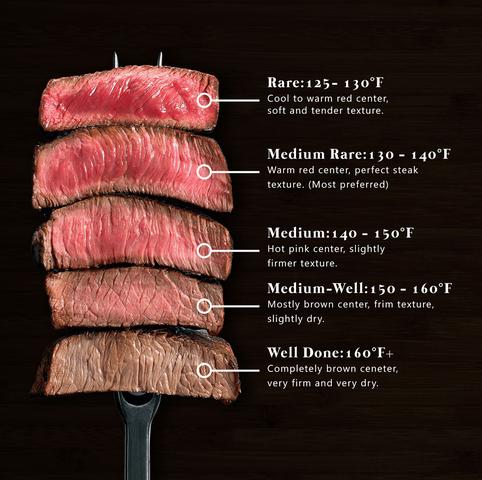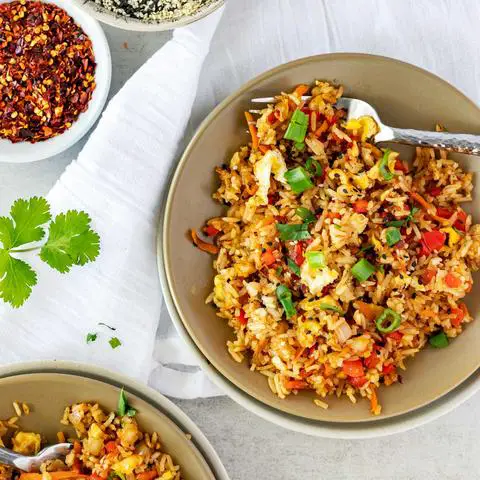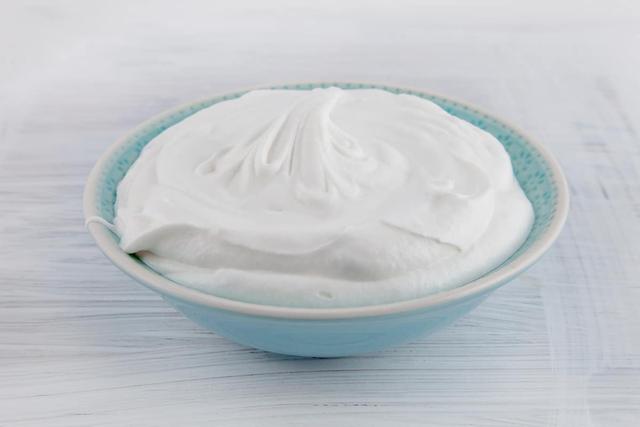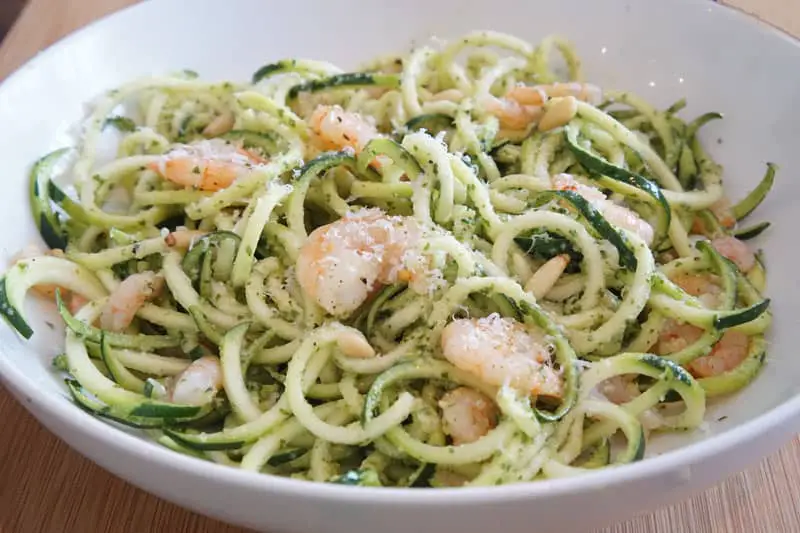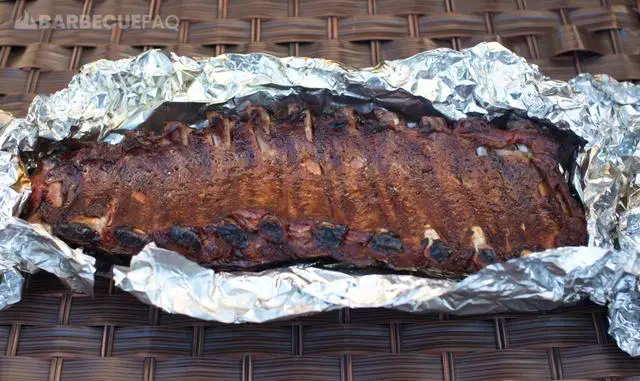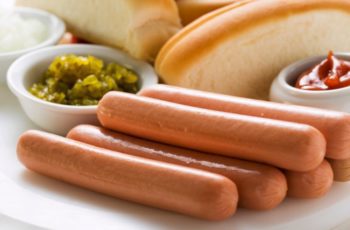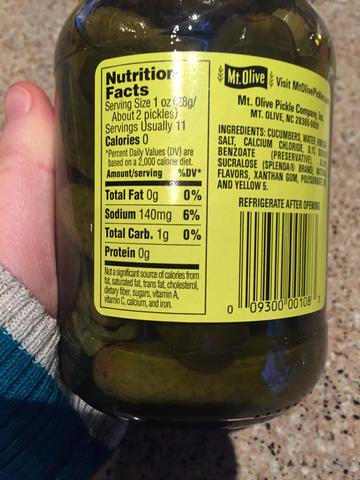
“Crunchy and tangy, pickles are a popular addition to any meal. But have you ever wondered about their calorie content? Discover the surprising facts about how many calories pickles actually contain and make informed choices for a healthier diet.”
Are Pickles Really 0 Calories?

Contrary to popular belief, pickles are not actually zero calories. While they may be labeled as such, there is a very small amount of calorie intake with each serving of pickles. In fact, if you eat a large quantity of pickles, the calories will certainly add up to a number higher than zero.
A calorie is the measurement of energy obtained from consuming food. While it is important to consume calories for proper bodily function, completely avoiding them is not recommended. Pickles, being fermented cucumbers, fall under the category of vegetables that bear fruit. However, even though they are considered low-calorie foods, they still contain a small amount of calories per serving.
How Are Calories Measured?
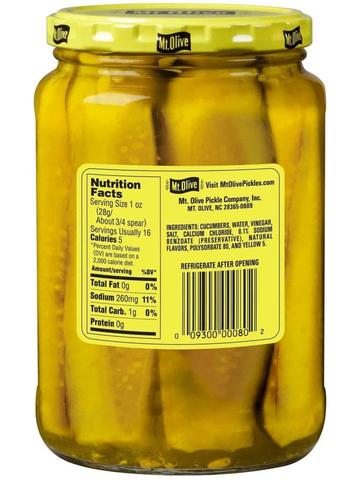
A calorie is a unit of measurement used to quantify the energy obtained from consuming food. It is defined as the amount of energy needed to raise the temperature of one gram of water by one degree Fahrenheit. When it comes to food nutrition, calories are measured based on the amount consumed and stored within our bodies.
Plants store starch and fatty cells which they break down into energy, just like humans and animals do. Starch is typically the main source of energy, providing the body with the necessary fuel for various bodily functions such as movement, digestion, and excretion. Therefore, calories are essential for our daily lives.
While it may be tempting to completely avoid calories in an attempt to lose weight or maintain a healthy diet, this is not a sustainable approach. It is important to determine the appropriate number of daily calories for your individual needs and stick to that intake level.
Are Calories Bad?
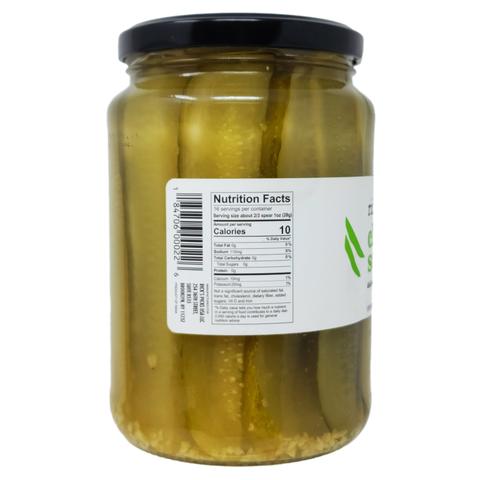
Calories themselves are not inherently bad. They are a unit of measurement for the energy that our bodies need to function properly. Calories are essential for our daily activities, such as movement, digestion, and even excretion. Without calories, our bodies would not have the energy required to perform these functions effectively.
However, consuming an excessive amount of calories can lead to weight gain and other health issues. It is important to find a balance when it comes to calorie intake. Each person’s recommended daily calorie intake varies depending on factors such as age, gender, activity level, and overall health goals.
It’s also important to consider the quality of the calories we consume. Not all calories are created equal. Foods that are high in nutrients and provide essential vitamins and minerals are generally considered healthier choices than foods that are high in empty calories from added sugars or unhealthy fats.
Are Pickles Vegetables?
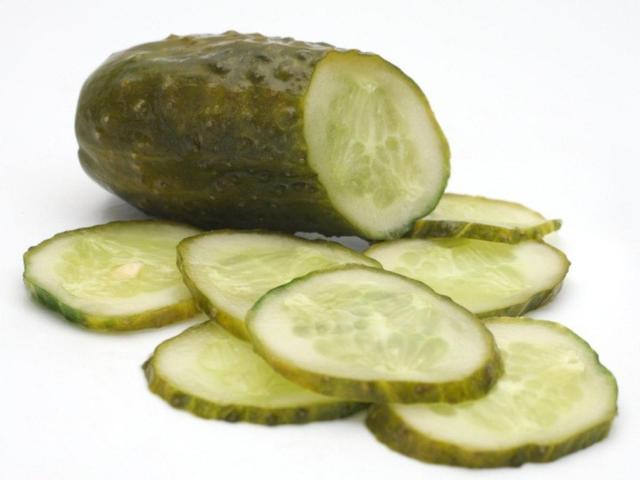
Yes, pickles are considered vegetables. Although they are made from cucumbers, which are technically fruits, pickles themselves are classified as vegetables. According to the US Supreme Court, pickles are recognized as a fruit of the vine. However, in terms of culinary classification and nutritional value, pickles are commonly regarded as vegetables.
What Does Zero Calorie Food Mean?
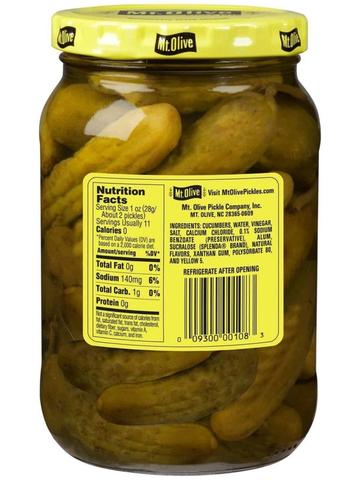
Zero calorie food refers to foods that are believed to contain no calories or have an extremely low-calorie content. However, it is important to note that no food is truly calorie-free. The term “zero calorie” is often used as a marketing strategy and can be misleading. In reality, these foods may still have a small amount of calories, although the quantity is so minimal that it is considered insignificant for most dietary purposes.
When a food is labeled as zero calories, it means that the amount of calories in a single serving is less than 5 and the food is also fat-free. Additionally, the food should not contain any simple carbs, proteins, or alcohol. The serving size determined by the manufacturer plays a significant role in determining whether a food can be labeled as zero calories. However, it’s important to remember that consuming several servings of these foods can result in a cumulative calorie intake.
How Much Is A Single Serving Of Pickles?
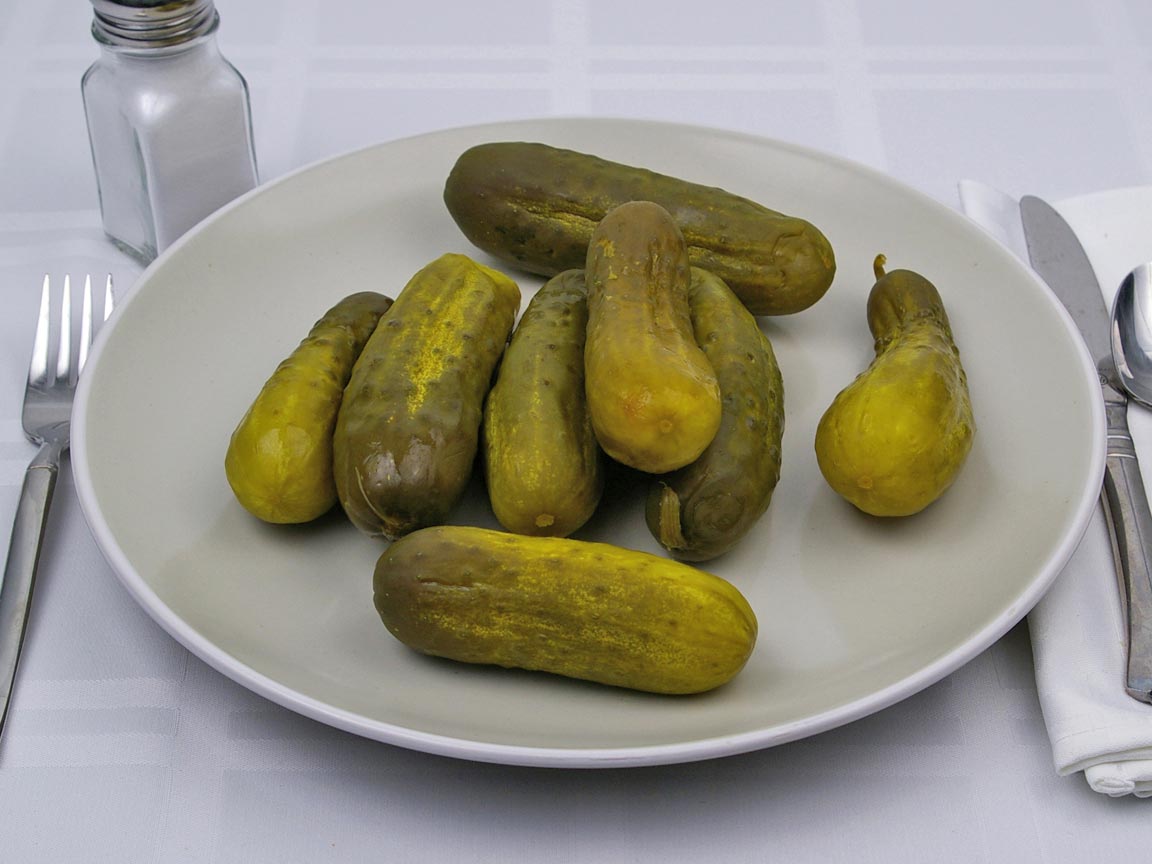
When it comes to pickles, the concept of a single serving can be a bit confusing. The serving size used to determine the nutritional facts on the label of pickle jars is often smaller than what people typically consume in one sitting. For example, a popular brand of pickles lists its serving size as 1 ounce, which means you would need to weigh the pickle before eating it. However, if you eat a larger portion, such as a cup of pickles (equivalent to about 23 slices and 155g), you would be consuming around 18.6 calories.
The variation in serving sizes and calorie content depending on the brand and type of pickles can make it difficult to determine exactly how many calories you’re consuming. It’s important to read the label and consider your own portion sizes when calculating your calorie intake from pickles. Despite the confusion surrounding serving sizes, pickles still remain a low-calorie option for those looking to manage their weight or incorporate healthy snacks into their diet.
Will You Gain Weight If You Keep Eating Pickles?
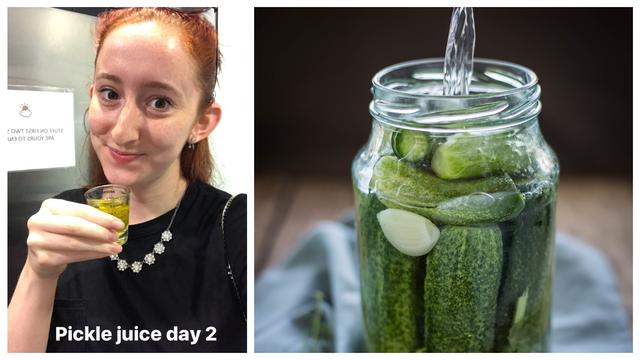
Although pickles are not truly zero-calorie foods, they are extremely low in calories. With less than one calorie per serving, it is highly unlikely that eating pickles alone will contribute to weight gain. In fact, pickles can be a good option for those looking to slim down due to their low calorie and fat content. The high fiber content in pickles also helps to increase feelings of fullness, making them a satisfying addition to any diet.
While the theory of negative calories suggests that chewing and digesting certain foods burns more calories than they provide, there is limited scientific evidence to support this hypothesis. It is uncertain whether the act of chewing pickles actually results in a net loss of calories. However, even if this theory were true, the low calorie content of pickles would still make them an insignificant source of calories overall.
What Are Negative Calories?
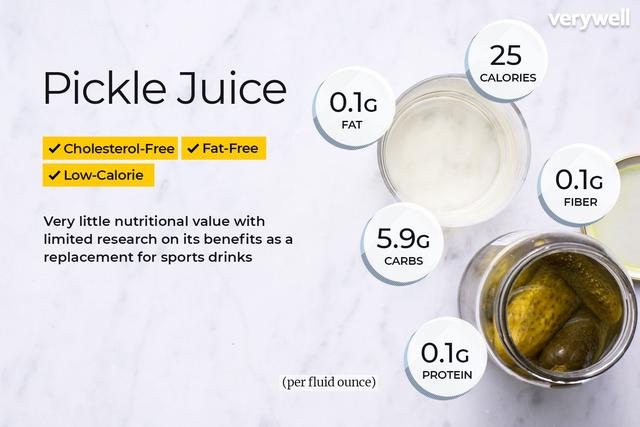
Negative calories refer to the concept that certain foods require more energy to digest than the actual calories they provide. The theory suggests that the body burns more calories during the digestion process of these foods than it gains from consuming them.
While there is some debate surrounding this hypothesis, the idea behind negative calorie foods is that their low caloric content combined with high fiber content requires more chewing, digestion, and energy expenditure, resulting in a potential net loss of calories.
Celery and pickles are often cited as examples of negative calorie foods due to their low calorie content and high fiber composition. However, it’s important to note that scientific evidence supporting this theory is limited, and most experts agree that the concept of negative calories is likely overstated or misunderstood.
What Are Other Zero Calorie Foods That Do Have Calories?
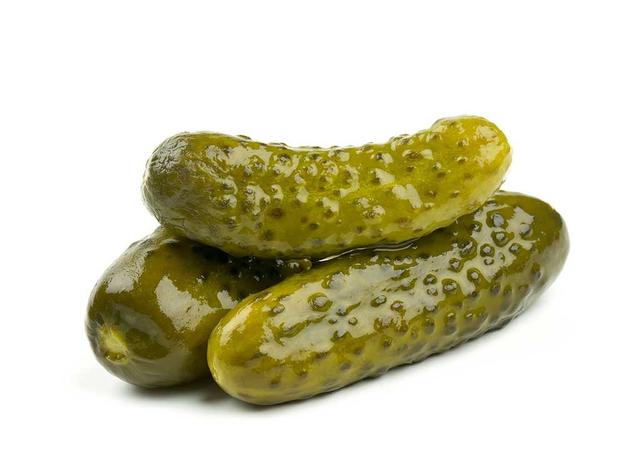
While pickles may not be truly zero calories, there are other foods that are often marketed as zero calorie options but still contain a small amount of calories. For example, celery is often touted as a zero calorie food, but it actually contains about six calories per stalk. Similarly, sugar-free gum and mints are advertised as zero calorie sweets, but consuming multiple pieces can add up to a significant number of calories.
Additionally, certain cooking sprays like PAM Cooking Spray and fat-free whipped toppings like Fat-Free Reddi Wip may claim to have zero calories, but their serving sizes are often unrealistic and don’t reflect how much people typically use. This can lead to consuming more calories than expected.
In conclusion, while there may not be many true zero calorie foods, it’s important to be aware of the actual calorie content in foods that are marketed as such. Paying attention to serving sizes and understanding that even small amounts of calories can add up is key when making dietary choices.
In Conclusion

While pickles may be labeled as zero calories, the truth is that they do contain a small amount of calories. However, the calorie content is still very low, making pickles a healthy option for those looking to lose weight. The concept of zero-calorie foods is somewhat misleading, as everything we consume will provide some level of calories. It’s important to find a balance and consume an appropriate number of calories for your individual needs.
Pickles are not the only food that may be labeled as zero calories but actually contain some calorie content. Other examples include celery, sugar-free gum or mints, and certain cooking sprays or fat-free products. These foods often have unrealistic serving sizes, leading to confusion about their true calorie content. It’s important to be aware of portion sizes and consider the overall nutritional value of these foods when incorporating them into your diet.
In summary, while pickles may not truly be zero calories, they are still a great option for those looking to manage their weight. Their low calorie content combined with their high fiber content makes them satisfying and filling. As with any food, it’s important to consider portion sizes and overall nutritional value when including pickles in your diet.
In conclusion, pickles are low in calories, making them a great snack option for those looking to maintain or lose weight. With approximately 5-10 calories per pickle, they offer a satisfying crunch and tangy flavor without compromising your calorie intake. Incorporating pickles into your diet can add variety and taste without guilt, while also providing some health benefits like hydration and probiotics.
Learn More About Grilling
If you want to learn more about grilling, check out these other helpful resources!

